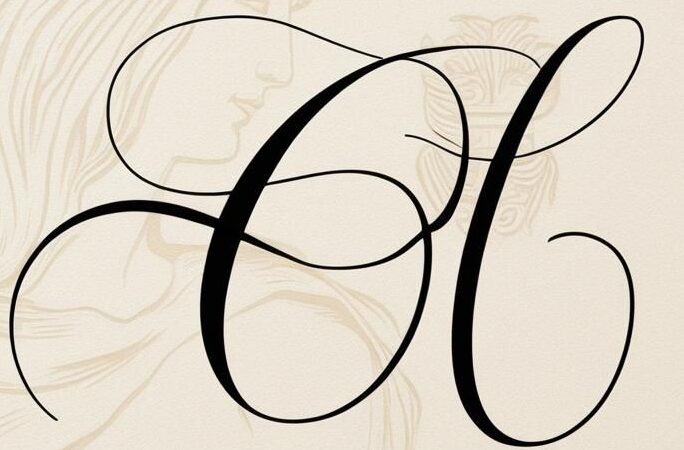Throughout history, intellectualism has been both celebrated and criticized. In recent decades, there has been a notable shift in literature and film toward anti-intellectualism—a movement that critiques or rejects the role of intellect, education, or highbrow culture. While intellectual pursuits like philosophy, literature, and the arts have long been regarded as essential for personal and societal growth, contemporary narratives often portray intellectuals as out-of-touch elites, pretentious, or even dangerous. This anti-intellectual sentiment in popular culture reflects deeper societal anxieties about elitism, complexity, and the perceived irrelevance of intellectualism in a rapidly changing, information-saturated world.
Defining Anti-Intellectualism in Modern Contexts
Anti-intellectualism refers to the rejection or devaluation of intellectual pursuits, expertise, and critical thinking. In literature and film, this is often portrayed through characters who dismiss knowledge, decry higher education, or place value solely on practical, “common-sense” wisdom. Intellectuals, in this context, are sometimes depicted as out of touch with “real life” or as figures of ridicule and disdain. This cultural movement often contrasts intellectuals—seen as distant and cerebral—with “everyday people,” who are characterized as grounded, practical, and honest.
In literature, this rejection of intellectualism might manifest through themes of rebellion against formal education, skepticism of elite institutions, or a valorization of the self-made, working-class hero. Similarly, in film, intellectuals are often shown as stuffy or detached from the struggles of regular people. This anti-intellectual trope reflects broader social and political tensions, particularly in times of populism, economic inequality, or political disillusionment.
Literary Examples of Anti-Intellectualism
- The “Man vs. Intellectualism” Theme in John Steinbeck’s Works
John Steinbeck’s novels, such as The Grapes of Wrath and Of Mice and Men, often feature working-class characters who find themselves at odds with intellectuals or formal education. In The Grapes of Wrath, for example, the Joad family struggles against economic exploitation and social systems that favor the wealthy and educated. While not explicitly “anti-intellectual,” Steinbeck presents a critique of elitism by highlighting the moral value of laborers over those who control the means of production. Intellectualism is often depicted as disconnected from the real, lived experiences of the struggling poor.
Steinbeck’s characters, who may lack formal education but possess practical wisdom, represent a counterpoint to the educated, often condescending figures in the novels. These blue-collar protagonists embody the belief that knowledge derived from lived experience can be more valuable than abstract, theoretical learning.
- The Anti-Intellectualism in Ray Bradbury’s Fahrenheit 451
Ray Bradbury’s dystopian novel Fahrenheit 451 takes a direct, and somewhat extreme, approach to anti-intellectualism. In the world of the book, books are banned, and intellectual pursuits are suppressed by a totalitarian regime. The government fears that knowledge and critical thinking will undermine the control of the populace, so it encourages superficial entertainment (television and “wall screens”) in place of intellectual engagement. The protagonist, Guy Montag, begins as a fireman who burns books but gradually awakens to the power of knowledge and intellectual freedom.
While Fahrenheit 451 ultimately champions the power of books and intellectual freedom, it also critiques the anti-intellectual attitudes that led to the book-burning society. Bradbury’s cautionary tale reflects anxieties about a society turning away from intellectual thought in favor of shallow entertainment, mass media, and conformity.
- Mark Twain’s The Adventures of Huckleberry Finn
Mark Twain’s The Adventures of Huckleberry Finn presents an example of anti-intellectualism through the character of Huck, an uneducated boy who values practical knowledge and common sense over formal learning. Huck’s moral compass, based on intuition and personal experience, is often portrayed as more genuine and effective than the “learned” but morally corrupt characters he encounters.
The character of Jim, Huck’s companion, is also depicted as more grounded in wisdom and moral clarity than many of the more educated characters in the story. Twain uses Huck’s skepticism of formal education and authority figures to critique societal norms, suggesting that intellectualism, especially in the form of dogmatic beliefs, can often be disconnected from human empathy and true morality.
Anti-Intellectualism in Film
- The Critique of Academia in The Graduate (1967)
In Mike Nichols’ classic film The Graduate, the protagonist Benjamin Braddock returns home after graduating from college and quickly finds himself disillusioned with the expectations placed on him by his family and society. The film critiques the values of academia and the established social order, positioning Benjamin as a character who rejects the intellectualism of his upbringing in favor of a more spontaneous and rebellious path. The famous line “Plastics,” spoken to Benjamin by a family friend, symbolizes the hollow and shallow nature of the corporate world that Benjamin is expected to join—a world that prizes material success over intellectual depth.
The film’s portrayal of academia as a hollow pursuit, disconnected from meaningful life experiences, feeds into the broader narrative of anti-intellectualism. Benjamin’s search for identity leads him away from intellectual ideals and toward a more chaotic, non-conformist existence.
- The Rejection of “Bookish” Characters in Dead Poets Society (1989)
While Dead Poets Society by Peter Weir is a film that champions the importance of intellectual curiosity, it also contains elements of anti-intellectualism, particularly in its depiction of the authoritarian figures in the school system. The film portrays the conflict between the inspirational teacher John Keating, who encourages his students to think critically and embrace individualism, and the conservative, rigid educators who prioritize tradition and conformity.
The tension in the film lies in the battle between intellectual freedom and the stifling institutions that seek to repress it. Keating’s teaching style and unconventional methods, while a direct challenge to the anti-intellectualism represented by the school administration, also face pushback from both the administration and some students’ parents, who view intellectual exploration as frivolous and potentially dangerous.
- The “Working-Class Hero” in Billy Elliot (2000)
In Billy Elliot, directed by Stephen Daldry, the titular character is a young boy from a working-class family in England who discovers a passion for ballet. His interest in an “elite” art form like ballet is at odds with the expectations of his community and his father, who views it as a frivolous pursuit. The film critiques the divide between intellectual or artistic pursuits and the practical, working-class values that prioritize hard work and survival.
Billy’s passion for dance is ultimately portrayed as a source of personal empowerment, but it also highlights the tension between the intellectual, “artsy” world of ballet and the gritty, practical world of the coal miner’s son. The film reflects how intellectual or artistic pursuits are often seen as “elitist” or impractical in working-class communities, yet it ultimately advocates for the value of following one’s passion, regardless of societal expectations.
The Populist Strain of Anti-Intellectualism in Contemporary Culture
The anti-intellectual movement in literature and film is often tied to a broader cultural critique of elitism, as well as a populist pushback against the so-called “ivory tower.” In a world where political and social divisions are increasingly pronounced, intellectuals and academia are sometimes viewed as detached from the concerns of ordinary people. This perspective often feeds into political and cultural movements that seek to reject the influence of experts, scholars, and intellectuals, replacing them with populist rhetoric and simplified, surface-level solutions.
Films like The Big Short (2015) and Joker (2019) explore how intellectuals—whether economists, politicians, or elites—can become alienated from the struggles of the common person, making them vulnerable to societal backlash. The characters in these films are often depicted as grappling with the fallout of intellectual and institutional failure, as well as the consequences of disconnected, top-down systems of power that fail to address the needs of the majority.
Conclusion: Anti-Intellectualism as Cultural Reflection
The anti-intellectual movement in literature and film reflects a broader cultural dialogue about the role of intellect and education in society. While intellectualism has historically been associated with progress, enlightenment, and critical thought, modern portrayals in literature and film increasingly critique it, questioning its relevance and connection to the real world. Intellectuals in contemporary narratives are often portrayed as isolated, detached, and out of touch, while characters who embrace practical knowledge, emotional intelligence, and non-academic wisdom are valorized.
This shift in cultural representation signals an ongoing struggle to balance intellectualism with the demands of everyday life. As society continues to grapple with the effects of globalization, technology, and economic inequality, the anti-intellectual movement in popular culture serves as a potent reminder of the tension between knowledge and power, and the ways in which the intellectual elite can be both revered and resented.

